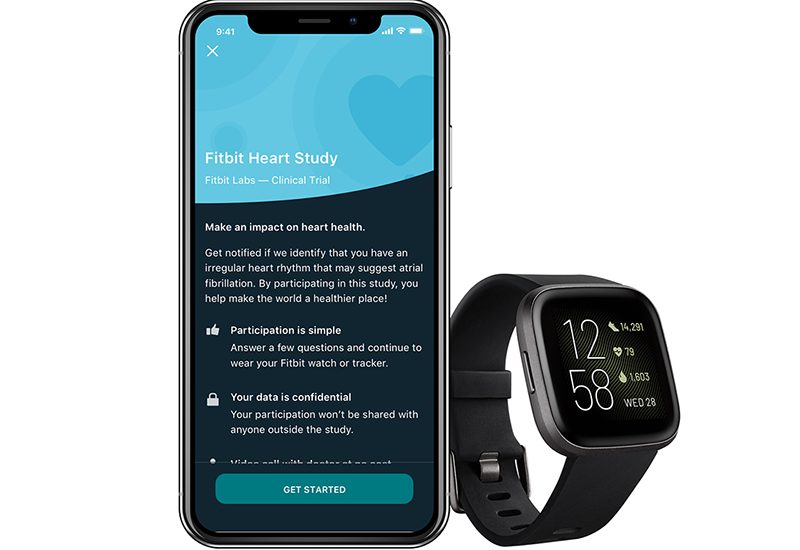Fitbit launched a large-scale study, which aims to validate the use of its wearables to help detect atrial fibrillation, or AFib, the most common form of heart rhythm irregularity.
Called the Fitbit Heart Study, it’s part of the Company’s broader strategy to make easy-to-use tools that accelerate the detection of a range of conditions more accessible. The Fitbit Heart Study aims to enroll hundreds of thousands of people, and its results will support the Company’s regulatory submissions globally, reports BusinessWire.
Worldwide, nearly 33.5 million are affected by AFib, and these people have five times higher risk of stroke than others. It can also be difficult to detect, as episodes can be sporadic and asymptomatic, and some studies suggest that as many as 25 percent of people who have an AFib-related stroke only find out they have AFib after a stroke has occurred.
“Until recently, tools for detecting AFib had a number of limitations and were only accessible if you visited a doctor,” said Steven Lubitz, M.D., M.P.H, principal investigator of the Fitbit Heart Study, a cardiologist at Massachusetts General Hospital and Associate Professor of Medicine at Harvard Medical School. “My hope is that advancing research on innovative and accessible technology, like Fitbit devices, will lead to more tools that help improve health outcomes and reduce the impact of AFib on a large scale.”
Fitbit wearables have the unique potential to accelerate AFib detection because their 24/7 heart rate tracking is powered by long battery life, which allows users to wear their device for multiple days at a time. The optimal way to identify irregular rhythm through heart rate tracking technology is to screen when the body is at rest, making assessment overnight, while people sleep, ideal for detection.
“Since we first brought heart rate tracking to the wrist in 2015, we have continued to innovate and provide users with a deeper understanding of their heart health through features like Sleep Stages, Cardio Fitness Level and now Active Zone Minutes,” said Eric Friedman, Fitbit co-founder, and CTO.

To track heart rate, Fitbit’s devices use photoplethysmography (PPG) technology to measure the rate of blood flow directly from a user’s wrist. Study participants who receive a notification about an irregular heart rhythm will be connected with a doctor for a virtual appointment at no cost to get more information and may receive an electrocardiogram (ECG) patch in the mail at no cost to confirm the notification.
Broader Commitment to Heart Health
The Fitbit Heart Study is part of Fitbit’s broader approach to heart health innovation, which includes industry partnerships and the development of other technologies focused on raising awareness and accelerating the detection of AFib to reduce the risk of stroke and improve population health. In addition to the technology being examined in the Fitbit Heart Study, the company has made significant progress in the development of a new electrocardiogram (ECG) feature for spot detection of AFib.
Read more Fitbit Launches Charge 4 With GPS, Heart Activity Tracking, Sleep Tools, Spotify and More
The study is open to people in the United States ages 22 years and older with a current Fitbit device that tracks heart rate, including Fitbit Ionic, Fitbit Versa family of smartwatches, Fitbit Charge 3, Fitbit Charge 4, and Fitbit Inspire HR. Participant data will be kept confidential and will only be shared with study partners in connection with the study. For more details on the Fitbit Heart Study or to enroll, visit the Fitbit Heart Study website.









